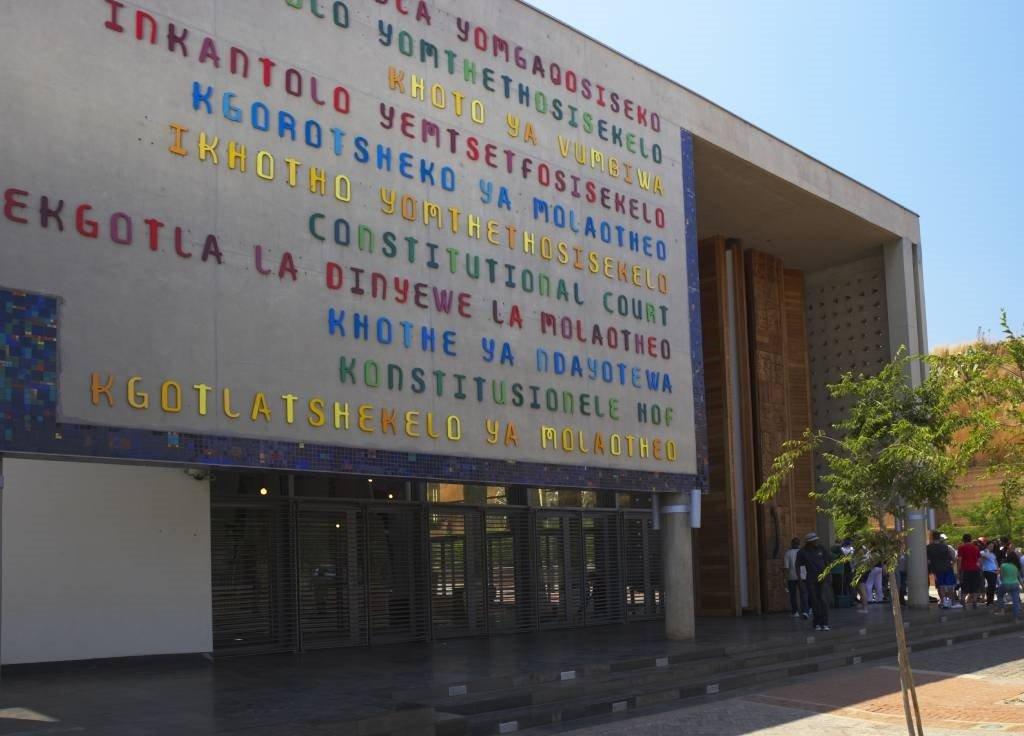
Africa-Press – South-Africa. The Constitutional Court on Tuesday reserved judgment in AmaBhungane’s case against President Cyril Ramaphosa on whether the Executive Ethics Code is constitutionally compliant in how it deals with the disclosure of political donations.
Representing AmaBhungane was advocate Steven Budlender, who argued the code in its current state was vague and deficient because it failed to give effect to the much-needed requirement of transparency.
Citing the My Vote Counts Constitutional Court judgment of 2018, the case, which was about the need to regulate the disclosure of information on the private funding of political parties and independent candidates, Budlender said “the judgment establishes things with regards to donations to political parties”.
“However, this doesn’t change whether the money is being donated to the political party, or to the individual candidate, or in a manner that assists an individual candidate; what this court explains in My Vote Counts, highlights that the risk of money in politics is enormous,” argued Budlender.
He said the court also explained “the way to deal with this risk is that mandatory disclosure of such donations be disclosed”.
ALSO READ | Mkhwebane to challenge ConCourt’s rejection of her impeachment rescission bid
“The gist of this court’s judgment is to say that it’s not enough to make it optional, it’s not enough to allow workarounds, there has to be mandatory disclosure of such donations for two purposes: the first is to enable members of the public to purposely and meaningfully exercise their constitutional right to vote and so on; the second is to act as a buffer against corruption because, as the court explains, it’s only when you have a mandatory disclosure that you have some prospects of acting as a bulwark against corruption.”
Budlender said if there was any doubt there was a problem with the code, it was made clear by Ramaphosa’s silence.
“The president did not challenge this case because he knows the deficits of the code and, in the first round of litigation before the high court, the president elected to file many affidavits. But he did not file an affidavit explaining why this code was constitutional. He never sought to explain the approach taken by the code as he is aware there is no explanation,” said Budlender
He went on to submit that “the code ought to be declared invalid”.
“Of course, let me say that the remedy we seek is not a reading in, it is not a mandamus, it’s not even an interim reading; it is simply a declaration of invalidity, suspended for 12 months looking forward, so that the president can reformulate the code in a way that deals with this difficulty. So you are not tying Ramaphosa’s hands, and you are not in any way, with respect, causing any difficulty in this regard.”
He said the Executive Ethics Act, from which the code was derived, in an attempt to give clarity on what members were meant to disclose, had actually done the exact opposite and caused more confusion.
These arguments were made and upheld at the Pretoria High Court, which declared the code unconstitutional.
As such, AmaBhungane was seeking that the high court’s order of constitutional invalidity be confirmed.
Budlender said the code didn’t provide the necessary specificity as required by the Ethics Act – it merely repeated the Act’s provisions, instead of outlining what should be disclosed in some detail.
Advocate Stuart Wilson, the court-appointed amicus (given that Ramaphosa did not oppose this leg), argued that it was not the code that was unconstitutional, but the Executive Members Act, which was too broad, and interfered with permissible policy decisions taken by the code.
He said: “If ministers must only disclose the donations they are aware of, and not those they are unaware of, then how does the minister go about looking for campaigns that supported their ascension to a particular party office, if the law contradicts itself?”
For More News And Analysis About South-Africa Follow Africa-Press





